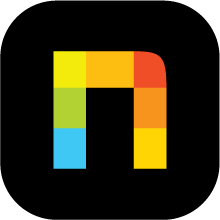ChatGPT may seem like a more savvy and interactive version of Google or another search engine, but this and other artificial intelligence tools could replace and displace workers in nearly every industry. During the next five years, 75% of organizations are expected to adopt A.I. practices, a recent study by the World Economic Forum shows—and companies are anticipating a job loss rate related to A.I. adoption of 25%.
What potentially more alarming is that 49% of workers could have half or more of their tasks exposed to large language models like ChatGPT, according to a recent study from the University of Pennsylvania. A potential job loss rate that high—coupled with a major shift in job requirements—means that people whose jobs were taken over by A.I. will need to be reskilled.
That’s where online education and upskilling companies like Coursera step in. Coursera offers nearly 6,000 online courses, professional certificates, and degree programs for the most in-demand industries including data science and analytics, digital marketing, project management, and much more.
A.I. and other advanced technologies have already infiltrated jobs in the service industry—including as waiters and freight movers—because they’re more “repetitive, repeatable, predictable jobs,” as Jeff Maggioncalda, Coursera’s CEO, puts it. But language-focused jobs, including teachers and lawyers, will become more vulnerable to advancements in ChatGPT and other generative A.I. tools—and credentials earned via Coursera can help workers upskill for the jobs most susceptible to A.I. development.
“If all these jobs become a lot more vulnerable, then everybody’s in the reskilling world,” Maggioncalda says. “If you don’t know how to use A.I. for your job, you’re in trouble. All employers want you to be able to use this if you’ve graduated.”
Courses and certificates vs. degree programs
Advanced degree programs can serve as a launchpad to more job opportunities and higher pay. MBA programs—as well as master’s degree programs in data science—can help students double their salary post-graduation and make major career moves.
But “everything is at a price,” as Maggioncalda notes, and while “there will almost certainly be value” in degree programs, they come at a higher cost than other options. Through online learning, people can earn certificates and other credentials by completing individual courses to learn the skills they need—often at a lower cost and more flexibility.
“I do think that there is a much higher level of competition and alternatives available,” Maggioncalda adds. “For the learner, it looks like more options than alternatives. For the university, it looks like competition.”
More universities could start offering different “pathways” to degree programs, meaning that there could be more lenient admissions thresholds. One example of this is University of Colorado—Boulder‘s new online master’s degree program in computer science on Coursera, which requires prospective students to take three preliminary courses. Ball State University also recently launched computer science and data science master’s programs with similar requirements.
Admissions for CU Boulder’s and Ball State’s respective programs aren’t based on an applicant’s prior academic history, and a bachelor’s degree isn’t required. Rather, prospective students choose a “pathway” in either algorithms or software architecture and must earn at least a “B” in the three courses associated with that pathway before they can qualify to enroll in for-credit courses. Plus, the CU Boulder program costs just $15,750 and has a pay-as-you-go model that only charges students for those classes in which they’re currently enrolled. Some computer science master’s programs can cost six-figures to complete.
“Degrees are going to become more affordable and more flexible,” Maggioncalda predicts.
Other advanced tech usage in online education
To give students a more realistic and immersive online learning experience, Coursera plans to release more virtual reality (VR) components to its online classes—from public speaking to Chinese language courses to physiology.
In an online public speaking course from the University of Washington on Coursera, students can practice giving speeches in front of a virtual audience and receive feedback in real time from their professor. Students can even adjust the venue type in which they want to practice, whether it be an auditorium or conference room and “choose a calm or restless audience,” Maggioncalda adds.
To practice more realistic interactions using a new language, a beginner’s Chinese language course offered by Peking University places students in a VR setting in a Chinese market, which can help students practice their listening, speaking, pronunciation, and vocabulary. What’s more, students enrolled in a physiology course from Duke University can even hop inside blood vessels via VR to learn more about measuring blood pressure and other physiological systems.
Why online education can be an accessible option for workers looking to reskill
Online programs can be a more suitable option for students who want lower costs and more flexibility in completing a program. More than one-third of online learners say that their top motivation for considering further education was a stalled career or stalled career search, according to a recent McKinsey & Co. report. But among the top concerns for online learners is a lack of access to one-on-one mentoring and coaching for post-grad opportunities.
To combat these concerns, Coursera this spring launched its coach function, which is powered by ChatGPT. Online students can use this function to ask specific and targeted questions about course material, Maggioncalda says.
Fortune sat down with Maggioncalda last month to see a demo of the new feature, and the bot will only answer questions related to the course, which can make it a more targeted and reliable source than turning to larger search engines like Google. The coach uses the course to answer questions rather than searching the entire internet, he explains. The coach can also provide summaries of lectures and even point learners to recommended video clips to answer their questions.
“The main change in the way people learn—because of A.I.—is that it’s going to be more personalized. It’s going to be more interactive,” Maggioncalda says. “The easiest way to think about it is if every single student had a personal [teaching assistant]. You’ll have someone to help you with your career coaching and help you with your studies.”
Check out all of Fortune’s rankings of degree programs, and learn more about specific career paths.








